Today, before the first official run, the International Olympic Committee announced its decision to disqualify the Ukrainian skeleton athlete allegedly…

“Service members are, by definition, limited in their rights and freedoms. This means they need additional protection tools. And the Office of the Military Ombudsman should become exactly such a tool. We are ready to defend the rights of every service member”.
These are the words of Olha Reshetylova, who was recently appointed as the Military Ombudsman. In September 2025, the President signed a decree establishing the Office of the Military Ombudsman, and in October, Ms. Olha was appointed to the position. Before that, since December 2024, she had served as the Presidential Commissioner for the Protection of the Rights of Service Members and Their Families.
What will change with the introduction of the Military Ombudsman’s Office? When will it become fully operational? What problems do service members most often raise? And what needs to be done to make the Armed Forces truly human-centered?
Read all about this in Olha Reshetylova’s interview for ArmyInform.
Ms. Olha, for about ten months you were the Presidential Commissioner for the Protection of the Rights of Service Members and Their Families. What changes with the creation of the Military Ombudsman’s Office? What is the philosophy of this Office, and what result do you hope to achieve?
First of all, compared to the position of the Presidential Commissioner, this is an entirely different status. Now we will operate as an auxiliary body to the President — a state institution with defined powers, tasks, and functions.
The Presidential Commissioner mostly has an advisory role: coordination, meetings, preparation of recommendations.
When, on my own initiative, we opened a mailbox for service members’ appeals in the Presidential Office, those appeals were processed in such a way that I would, for example, write letters or call commanders and officials of various levels, asking them to assist, to pay attention, to help. In other words, I could not demand anything, could not issue formal proposals or insist on their implementation.
Now, once the Office of the Military Ombudsman becomes operational, I will have such authority.
Primarily, this involves conducting inspections in cases of identified violations of service members’ rights. The inspections will result in conclusions, which will be submitted to commanders, commanding officers, or other officials — who will be given a specific deadline to take corrective measures.
So they will be obliged to respond?
Yes, absolutely. Right now, our accompanying draft law is in Parliament — it grants the Military Ombudsman the necessary legal instruments. The Ombudsman will be able to impose administrative liability on officials — not only on commanders or service members, but also on officials of all state bodies: regional governors, local authorities, ministers. Anyone can face administrative responsibility — through the court, of course, since the judiciary makes the final decisions. But the Military Ombudsman will be the one to draw up the administrative protocols.
So you are getting real leverage?
Yes, these are quite effective and significant levers. It’s impossible to compare them to what the Presidential Commissioner had.
Of course, the position within the President’s Office — and the title itself — gave a certain influence, and people generally reacted and couldn’t ignore my requests or suggestions. But if things had continued this way, it would only have lasted until officials realized that, in fact, the Commissioner had no legal tools of influence.
That’s why there was an agreement with the President: first, he appoints me as Commissioner so that I could develop the necessary legal framework. We drafted the law and pushed it through Parliament. It was difficult, but we did it.
There were almost a thousand amendments, right?
899 amendments. Some of them we accepted — some were truly constructive, others quite controversial. For example, an amendment added responsibility for “confidents” — people involved in the Resistance Movement in occupied territories. I understand how important that is because there’s currently no legislation regarding them, and no one is officially responsible for protecting their rights. No institution deals with them systematically.
For me, this is now a challenge — how to protect the rights of these people. We’re already working on it, studying the legislative base and international practices. We have to find ways to protect those engaged in the Resistance in the occupied territories.
I’ll quote a part of your recent social media post: “In fact, no one in the world knows how to build a system for protecting human rights and managing human capital.” Do you know? Do you have your own vision?
Let’s say, building a human capital management system is not exactly within my competence — that’s not the mandate of the Military Ombudsman.
I can make recommendations from a human rights perspective, but in reality, this is a matter for the Government and the Ministry of Defense.
So how do we achieve human-centeredness?
That’s a very good question. We can talk about it for a long time, but without a change in mindset — among service members, commanders, and in society as a whole — this will be impossible. Such change is a long-term process. It involves emotional and psychological work, education, new practices. So yes, we are working on it — the state as a whole has been doing so for the last 10–11 years, and it will continue gradually.
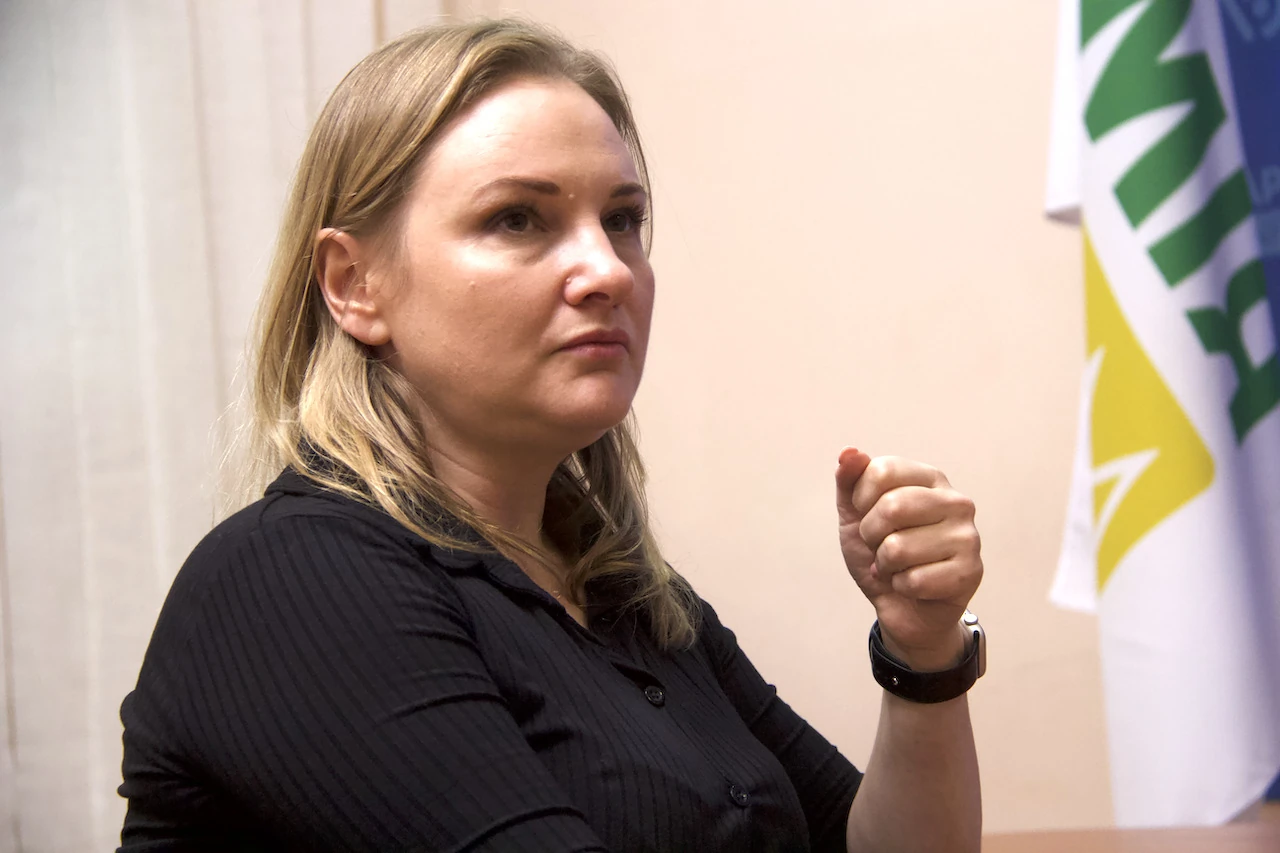
Until my appointment, I think few people within the Defense Forces truly understood what human rights protection means.
Protecting service members’ rights is part of the official duties of many defense officials — every commander is responsible for this. Commanders, ministers, their deputies, the Military Law and Order Service — they all bear responsibility. But few truly understood what rights protection is.
For example, I once had a discussion with the head of the Military Law and Order Service. When I raised specific cases, he said, “So what, are we going to stand up for every ‘sunshine’?”
Yes, because the essence of rights protection is defending each individual life. So yes, we will stand up for every “sunshine” if their rights are violated.
Of course, I put “sunshine” in quotes — it’s not to belittle anyone. But we will fight for each and every person. Because that is the essence of human rights — they are not abstract; they are the destiny of each individual.
Everyone matters.
And even in our recent special operations — those I coordinated — when we rescued service members who had been trapped in occupation for more than three years… their families had appealed, but nobody wanted to “get involved.” For me, each of those service members mattered deeply.
I’m proud that we did it — that we proved “Saving Private Ryan” is not just a Hollywood story. It’s something Ukrainian special services and the Ukrainian state can do. And Ukraine will fight for every life.
That’s the principle on which we will build our work. Perhaps I can’t yet describe the specific tools — we’ll develop them as we go — but the foundation is clear: the value of every service member’s life and fate.
Since you mentioned the rescue operations — could you tell us more?
So far, there have been three special operations in which I was involved: two for service members and one for a servicewoman’s family.
The last one was particularly striking — Russian intelligence sent the servicewoman a photo of her mother: an FSB officer hugging her while holding a pistol. She reached out for help, and the “Angels” special unit swiftly evacuated her entire family — her father, brother, and mother. That’s just one of many such operations.
The other two involved rescuing service members. I can’t disclose many details, but for me, this is one of our key priorities. We must speak not only about those released from captivity or still missing, but also about those trapped in dire circumstances because of combat.
In the first operation, for example, the soldiers had been wounded and remained in a hospital when the city was occupied — locals hid them.
In the third, a collaborator took a soldier from captivity and kept him in slavery. Such cases don’t qualify for the status of prisoner of war, so the Coordination Headquarters for Prisoners of War isn’t responsible for them — but our command is. These are our people, our soldiers, whose fate we must care for.
And I’m immensely grateful that we have the “Angels” special unit. I only recently got involved, but they’ve been doing this for years — they’ve already evacuated about 90 people from occupied territories and Russia itself. This is a modern form of intelligence that few countries have — something Ukraine can truly be proud of. People who can find solutions where none seem to exist. I’m proud of them and of all three operations.
Returning to the Military Ombudsman’s activities — Ukraine already has the Parliamentary Commissioner for Human Rights, currently Dmytro Lubinets. Don’t your functions overlap? How do you divide who handles what?
This was one of the major points of debate in Parliament, since the Constitution mentions the Parliamentary Commissioner, responsible for human rights throughout the state, including the Defense Forces.
After several discussions, Mr. Lubinets and I sat down and honestly clarified the division. His Office does not handle service-related issues — not just military service, but also, for example, civil service. If an official or soldier turns to him about their service activities, they reply that it’s outside their competence.
The Military Ombudsman’s mandate is precisely to address issues of military service — that’s the fundamental distinction.
The Parliamentary Ombudsman ensures overall human rights oversight, while we, as part of the Commander-in-Chief’s vertical, are involved in decision-making processes — we oversee them, implement them together with the Defense Forces.
The Military Ombudsman is a subject of the Law on National Security — literally listed alongside the National Security and Defense Council (NSDC). Within the Commander-in-Chief’s structure, we are a supervisory body directly involved in the implementation of decisions.
Just two weeks ago, I returned from South Africa, where I attended the International Conference for Ombuds Institutions for the Armed Forces. Several countries there have both a Parliamentary Ombudsman and a Military Ombudsman — for example, the Netherlands, which has a General Inspector and a Parliamentary Commissioner for Human Rights. Ukraine was represented the same way — by the Parliamentary Commissioner and the Military Ombudsman — which fully aligns with international standards.
We chose the model we can afford under martial law, since we cannot amend the Constitution.
Ideally, the Military Ombudsman would have constitutional status, but that’s currently impossible. Sadly, advocacy efforts by human rights organizations before 2022 didn’t succeed. We tried to include the Military Ombudsman back when the Law on National Security was passed in 2018, but we couldn’t.
The full-scale invasion finally proved how essential this institution is. The President understands that, made it one of his priorities for 2025, and has now implemented it.
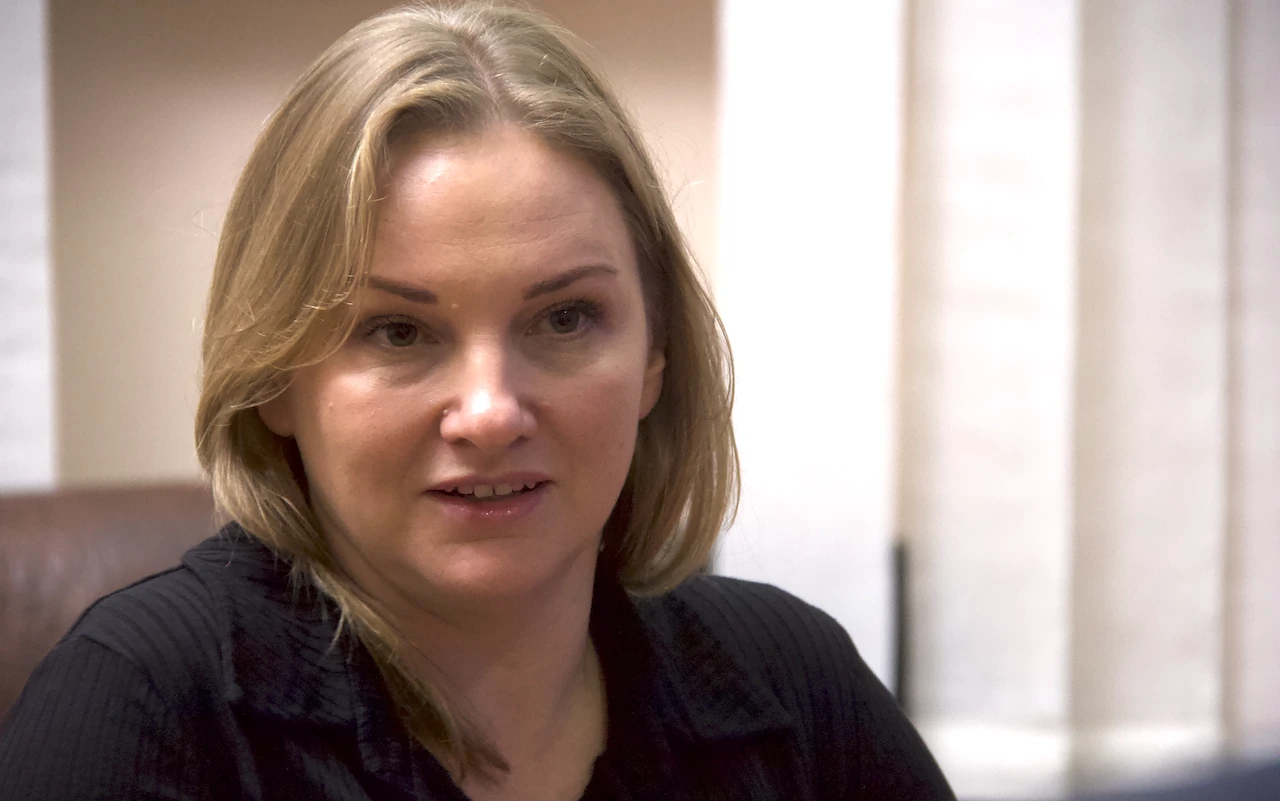
If we put it this way: as long as a person is not in the military, not in the status of a service member, all relevant issues can be referred to the Parliamentary Commissioner for Human Rights. But once a person has been mobilized or has joined voluntarily and obtained the status of a service member, the responsibility for protecting their rights already falls within your competence, correct?
From the moment the order of enlistment is issued until the moment the order of discharge is signed.
And what about work with veterans?
When it comes to veterans, any issues related to the period of their military service can indeed be addressed to us. However, everything that concerns a veteran’s civilian life — in that case, we have, again, the Parliamentary Commissioner, as well as the Ministry of Veterans Affairs — that’s already within their jurisdiction.
Let me explain why. Both those liable for military service and veterans are civilians who can enjoy all the rights and freedoms available to civilian citizens.
Service members, by definition, are limited in their rights and freedoms. This means they require additional protection mechanisms. They cannot exercise all the same rights as civilians. Therefore, during this specific period, they are provided with additional instruments for protection.
The President has already signed the decrees on the establishment of the Office of the Military Ombudsman and on your appointment as the Military Ombudsman. However, in your Facebook post, you wrote: “The Office will begin its work the day after the official announcement is published in Uryadovyi Kurier or Holos Ukrainy. But you won’t see this announcement in the near future”. Could you explain why? And when will the Office be able to start functioning fully?
The creation of a new state institution is a lengthy process. I could list for a long time all the steps we need to take — and are currently taking — but I cannot make them happen any faster than the procedures allow.
For example, we need to appoint a chief of staff. As an official — as the head of the Office of the Military Ombudsman — I cannot simply appoint people to positions without a chief of staff in place.
First, I have to appoint the chief of staff, who will then submit a staffing structure for my approval. Once I approve it, only then can the chief of staff start appointing personnel to positions.
All civil servants of categories A and B must undergo a special background check. Right now, we are selecting the chief of staff and sending them for this check.
My own special check took a week — which was very fast, because everyone understood the importance of the process and worked quickly. We hope the others will also go through it swiftly, but it still takes time.
In addition, we have already registered the legal entity, and the process of opening accounts with the State Treasury is underway.
In short, I could continue listing all the bureaucratic procedures that need to be completed — and we are doing them as fast as possible — but it still takes time.
Additionally, the law stipulates that the Office of the Military Ombudsman can begin operating only after at least 30% of the staff have been hired. And recruiting these people is also a challenge — because we want to hire the best. Given the current shortage of human resources in the country, this is not easy.
Moreover, we would like to have military positions within the Ombudsman’s Office. But for that, it is necessary to amend one of the presidential decrees — and that’s another layer of work.
In general, launching a new state institution means going through a very large circle of bureaucratic procedures that we are obliged to complete.
You said you want to have military personnel in the Office of the Military Ombudsman. Why?
First of all, I really need the experience of service members — their understanding of the internal processes of the military organism. Even the ability to see where and how something might be concealed in the course of an internal investigation or inspection. The ability to communicate on equal terms with military officials is also extremely important.
Secondly, this is, after all, the Office of the Military Ombudsman. Of course, we are an institution of civilian democratic control, but nonetheless, we are part of the national security sector. And we should, at least partially, consist of military personnel.
And third — this may sound pragmatic or even mercantile — but the best people are currently in the Armed Forces.
Could you list the main problems that service members — and their family members — currently address to the Military Ombudsman? How do you see the ways of resolving them? Does every case require an individual approach, or can some issues be solved through systemic changes?
The range of problems is actually very broad. But very often, each individual complaint reveals a systemic issue.
For example, we receive complaints about failure to provide medical care or poor medical support, failure to refer service members to the Military Medical Commission (MMC) or to treatment.
There are also complaints about denial of leave, prolonged stays at positions, and lack of rotations. Some concern problems with transfers between units.
Relatives of missing in action also reach out because of communication problems with military units — they are not provided with complete information, and military units often misinterpret the legal framework regulating interaction with families of missing, captured, or fallen soldiers.
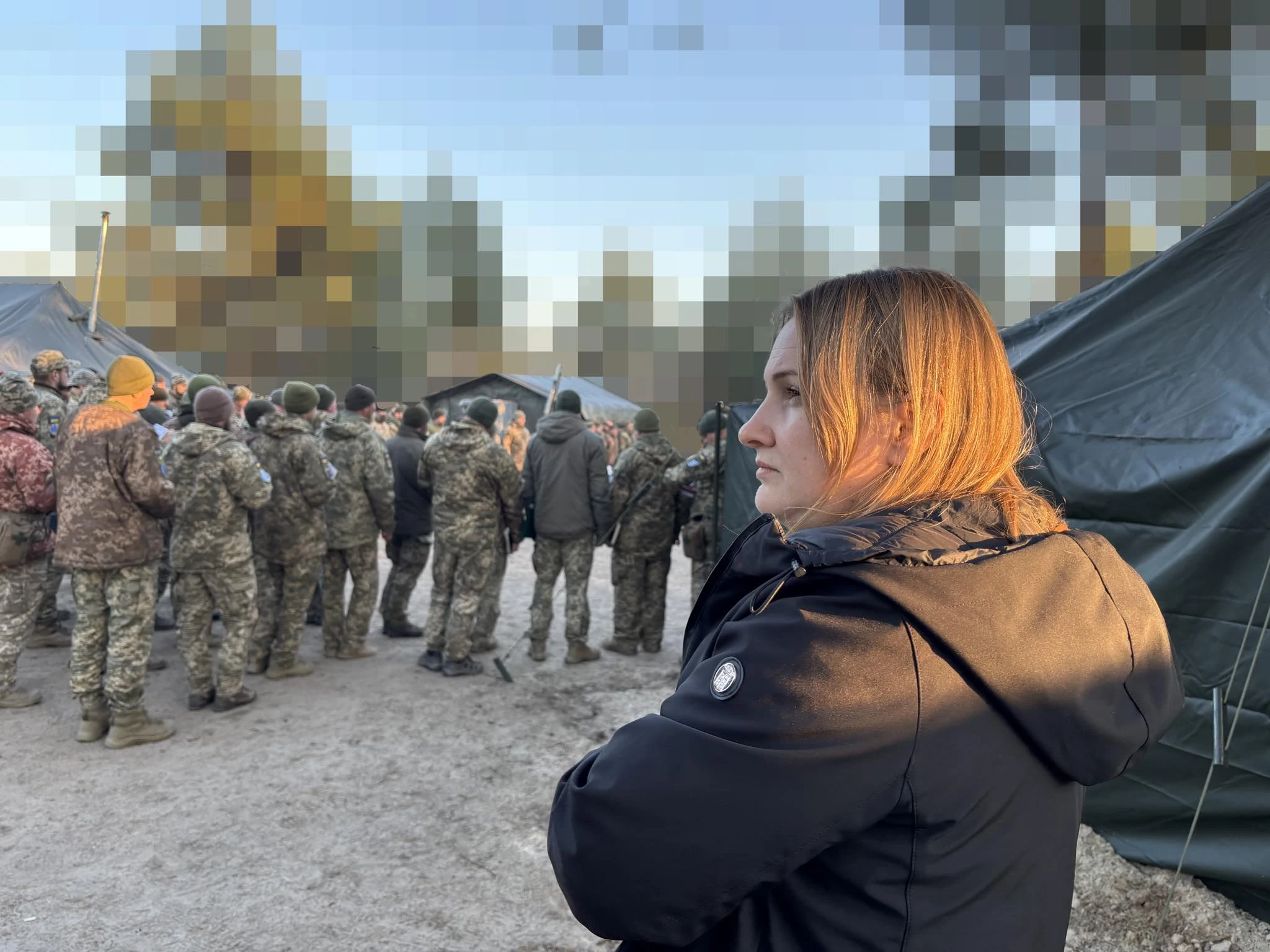
That’s the general list of issues. There are also frequent questions about monetary support and social guarantees.
In one way or another, we encounter systemic problems that either require changes to legislation and regulations or clarifications.
Quite often, different military units interpret certain laws or regulatory acts in their own way. Much depends on the human factor.
For instance, there might be a lawyer in a unit who insists that “it must be done this way”, regardless of what the Ministry of Defense or the Military Ombudsman explains.
Just recently, we had a very serious discussion with one of the Air Assault Brigades — a lawyer there misinterpreted a regulatory act, and as a result, families of more than 300 missing soldiers were left without payments for a long time.
If we are talking about a system — and the army is a system — then there should not be such a strong influence of the human factor. There must be clear frameworks and clarifications, and people should follow them.
How to achieve this — that’s a difficult question. Personally, I would like issues of monetary provision, social, and legal guarantees not to even reach the Military Ombudsman. These are matters that the internal structure should be able to resolve on its own.
For example, within the Ministry of Defense, there is the Main Directorate for the Protection of the Rights of Service Members, which we created about a year before we began drafting the law on the Military Ombudsman.
They work quite effectively — they have established a systematic process and can handle a significant number of issues internally.
I would very much like to see similar structures within the Ministry of Internal Affairs, the Security Service of Ukraine, the Foreign Intelligence Service, and other military bodies.
This should form a kind of pyramid, so to speak. The Military Ombudsman should have liaison units in every military structure that act as filters.
They could absorb the flow of complaints that do not require systemic or large-scale solutions.
The Military Ombudsman should focus on systemic decisions, identifying global problems, and addressing severe violations.
Of course, this won’t happen immediately. For now, everything comes directly to me. I really hope that the Military Ombudsman’s Office will not drown in this flow of complaints.
It’s clear that at the beginning we’ll have to deal with a lot of backlog, but we will gradually build interaction in such a way that the system itself begins to solve its problems and correct its mistakes.
Do you see any options for solving problems such as prolonged stays on positions, transfers, and the like? Because the causes of these problems are much deeper than simply commanders’ unwillingness.
Let us start with the basics — the shortage of personnel. In order to have the possibility of rotations, transfers, leaves, medical treatment, and so on, you must preserve people and you must motivate them. Motivate them not to go AWOL, motivate them to come serve in your unit, motivate them to carry out tasks and orders. It sounds like a banal thing people constantly talk about, but here we come to questions of commanders’ leadership, service conditions, and other large-scale issues. And these are not solved in a day.
Training a commander takes years. Fortunately, precisely because not all the commanders who went through 2014 left the army during the crisis of 2017–2019 — because some remained and continued to grow professionally — we now have experienced and competent commanders and have held the front line.
We must continue to work on this. We must work on military leadership and talk about the climate within units. This is a very important issue that depends not only on higher command. The climate in a platoon depends on every service member, on their skills and abilities to resolve conflict situations, on their motivation from the very beginning of service, on the mindset with which they joined the unit. It is a huge complex of issues; there is plenty to work on.
And when we look at it from this point of view — how to motivate people to stay, how to motivate people to come into units — only then can we start talking about the feasibility of rotations.
Personnel shortage is the main thing, but the issue is not only that. Another problem is that rotations, for example, are sometimes extremely dangerous.
I had one complaint. In Kharkiv region, service members had been on positions since April. They lost 30 kg of body weight each. If you look at their photos, they very much resemble the soldiers we bring back from captivity. We began to work on getting them out. I was in contact with commanders almost every day; I reported to the Commander-in-Chief; the Commander-in-Chief personally got involved. But the problem was, first, that the operational situation had to be improved — the front line had to be pushed back so there would be an opportunity to extract them from those positions. Even when one of the best brigades, in my opinion, went in, straightened the front line and reached those service members, there still was no opportunity to evacuate them. Only now, with worsening weather conditions, I believe they reported to me the day before yesterday that all of them came out without losses — they had been there since April. And everyone had been working on this. It was under the control of the entire chain of command, from the company commander to the Commander-in-Chief.
I simply nagged everyone about this issue every day. But it took that much time. Because the war changes. The “kill zone” expands, the enemy understands this and controls all logistics routes. What can we do in this situation?
I think changes are needed in the training of service members. Shooting is important, throwing grenades is important, everything we teach service members in basic combat training is very important, but I believe a vitally important part of the training program is missing — survival skills.
How to survive under current conditions? They are effectively sitting in a lair; in urban combat it is often a basement. Very often they are even alone. It may happen that a comrade is killed. How in such situations to deal with basic physiological needs, how to keep oneself up, how not to lose one’s mind? These are all important things that must be taught and prepared for. And at moments like these I recall a brigade that, to my mind today, is one of the examples in terms of observance of service members’ rights. On their adaptation courses after basic combat training they train exactly for this. They take service members out and settle them in dugouts, in conditions close to those in which they will have to operate while carrying out a combat mission.
They give them the chance to get used to it. They explain, for example, how to set up a makeshift stove underground so it will not be visible on a thermal imager from above; how to run out correctly and receive a drone delivery without being hit by FPV [drones].
So many of these elementary-seeming skills need to be practiced both physically and psychologically. I believe that such a shift in the training paradigm should increase, among other things, a service member’s survivability.
Therefore, I want now to conduct a study of the psychological states that a service member goes through while in positions. Preliminary observations already allow us to identify stages a person goes through under modern combat stress: first apathy, then a state of betrayal, so to speak, when he no longer believes he will be taken out at all. According to our observations, after 45 days a service member loses the motivation to survive. How do we prepare him for that so that, being in positions for a prolonged period, he does not lose motivation? Or so he acquires self-regulation skills — how to draw that motivation from within. This is extremely important. And this is exactly what we will be working on, but I would like it to have some kind of scientific approach — so that we study it first. After all, nobody in the world knows this.
Unfortunately, Ukraine today is a kind of testing ground for studying new practices of warfare. Studying this, we must change the training system, the rotation system, etc.
Specifically, questions of technical support for rotations, use of ground robotic systems, escort by aerial reconnaissance, covering fire, and so on. Again, this is not my direct task. My task is to raise this issue and put it before the military.
Since we started talking about training, it is known that you initiated the introduction of adaptation groups in the Armed Forces’ training centers. How is it going so far? Are they only conducted in selected training centers?
No — they must now, by order of the Commander-in-Chief, be conducted mandatorily in all training centers. Overall, this idea arose during a working group meeting chaired by Pavlo Palisa in the Presidential Office. He convened a working group to consider how to combat the large number of AWOL cases. During the discussion it became clear that the highest number of AWOL cases occurs specifically in training centers. We started thinking how to combat this. Typical military ideas are: fence everything with barbed wire, increase penalties, etc.
I said, okay, you do your part, I’ll do mine. We then proposed the idea of adaptation courses. Initially we launched it experimentally in four training centers. I’ll be honest — few in the military believed in it. But I continue to believe, and it seems to me this is a very important story, not so much as a fight against AWOL but as an issue of motivation for recruits.
What is the essence of the adaptation course? We “argued out” from the General Staff essentially three days for its conduction before the start of basic combat training. New conscripts arrive at the training center. The majority of them are in absolute stress. In the fourth year of the war, the conflict “unexpectedly” came to them. They arrive and, in this state of stress, are unable to absorb the training material. They are at the stage of rejecting what is happening to them. Our task in these three days allocated to us is to stabilize the recruit, to give him the opportunity to accept this reality, to understand that this reality is not as terrible as it may appear. And to maximally motivate and prepare him to absorb the training material.
What does the adaptation course include? First, of course, psychologists’ work. Psychologists work with small groups and try to stabilize them as much as possible. Second, a course in the history of Ukraine. This course itself is motivational. If you know Ukrainian history, the question of why you are here does not arise. Many of those who come, unfortunately, do not know this, have never thought about it. On this course many of them simply open their eyes widely at what is actually happening. By the way, the Azov color party delivers this course very well. Third, what is very important to me — protection of service members’ rights, military law, rights and duties of a service member. First we tell them about their rights, that they have instruments to protect their rights, and then we talk about duties, because every service member must know them.
We are also currently looking for instructors for a financial literacy course. There is a great course on Armiya+ that they say breaks records in view counts. Why financial literacy? The first issue is that many of these recruits will begin receiving money they have never gotten in their lives. This affects the formation of different types of addictions — gambling, alcoholism, drug addiction. That is one side. On the other hand, if we teach them to plan for the future, this stimulates survival. When you think about what you will do after victory — invest in something, build a house, buy your wife a fur coat, start a business with friends, etc. — that subconsciously forms in you a desire to live and to plan a future.
Some training centers also involve chaplains; others provide individual consultations with lawyers. But the point is that these three days are what should stabilize recruits.
I understand that if this was introduced across all training centers, it produced certain results?
We had discussions with the General Staff. They did not believe the results, but the training centers themselves began to give positive feedback. This is not even only a question of reducing AWOL. It is that those who remain and do not go AWOL are better prepared to absorb the material. And we do not know how many AWOL cases there would have been if we had not done this. Because we understand that the pool of recruits is each time less and less motivated. So it seems to me that this works. And according to feedback from the training centers themselves, where it is established and works, it should be retained. Therefore, the General Staff agreed and the Commander-in-Chief approved the order.
Another issue is that it is not possible to implement this in all training centers. Our idea is that partly these adaptation courses should be taught by civilians. People at first should still see civilians. Unfortunately, we do not have today those civic organizations able to cover all training centers.
Somewhere “Boryviter” works — it is simply out of this world what their psychologists do. Somewhere the “League of Officers” operates. “Pryntsyp” and “Legal Hundred” are connected on military law; somewhere private lawyers simply travel to centers. But scaling this across all training centers is quite difficult. In addition, many training centers are dispersed at present.
I hope that our approach will show results over time. Because this is fundamentally a different approach. But we must acknowledge that this alone is not enough — unfortunately, without an overall state information policy and without countering Russian propaganda, it will be very difficult for us to further sustain mobilization levels.
How will service members and their families be able to contact your Office? What communication channels will there be? It won’t be limited to traditional mail anymore, right?
The idea is that we will have, conditionally speaking, a call center — but in practice, it will be an information and analytical hub. We are already working on its creation. People will be able to contact us in various ways: a short telephone number, all messaging platforms will be connected, and there will be an email address. There is also an idea to add a button in the Army+ app.
In short, everything will funnel into a single center — a unified information hub. There will be a rapid distribution of complaints by areas, since our response deadlines are very short. We have three days to determine whether a complaint is admissible — meaning, whether it falls under our jurisdiction or not — and ten days to take action. I believe no other government body in Ukraine has such limited response timeframes.
Furthermore, if there is a threat to a service member’s life or health, the Military Ombudsman has three days to respond.
That is why I want us to categorize complaints by level. For instance, if it’s a red-level case, that complaint must immediately reach me or my deputies — so that we can see it and act right away.
In addition, why do I call it an information and analytical hub? Because I want analytics to happen immediately — using artificial intelligence and different algorithms. Conditional “unit cards” will be automatically created, so we can see in which unit the largest number of complaints originate, and where there may be a systemic problem. This data will be mapped onto the frontline so that we can identify “hot spots” where human rights violations occur and alert the command: “Look, you have a problem here.” Because this can become an issue affecting combat readiness.
Basically, I envision it visually — dashboards, analytics, all of that. And we are already working on it. We have found a very skilled specialist — I won’t announce who just yet — but I have great expectations that he will be able to build this system.
This is how the processing of complaints and citizens’ appeals will take place. Of course, we will also accept complaints from relatives or from those representing a service member’s interests.
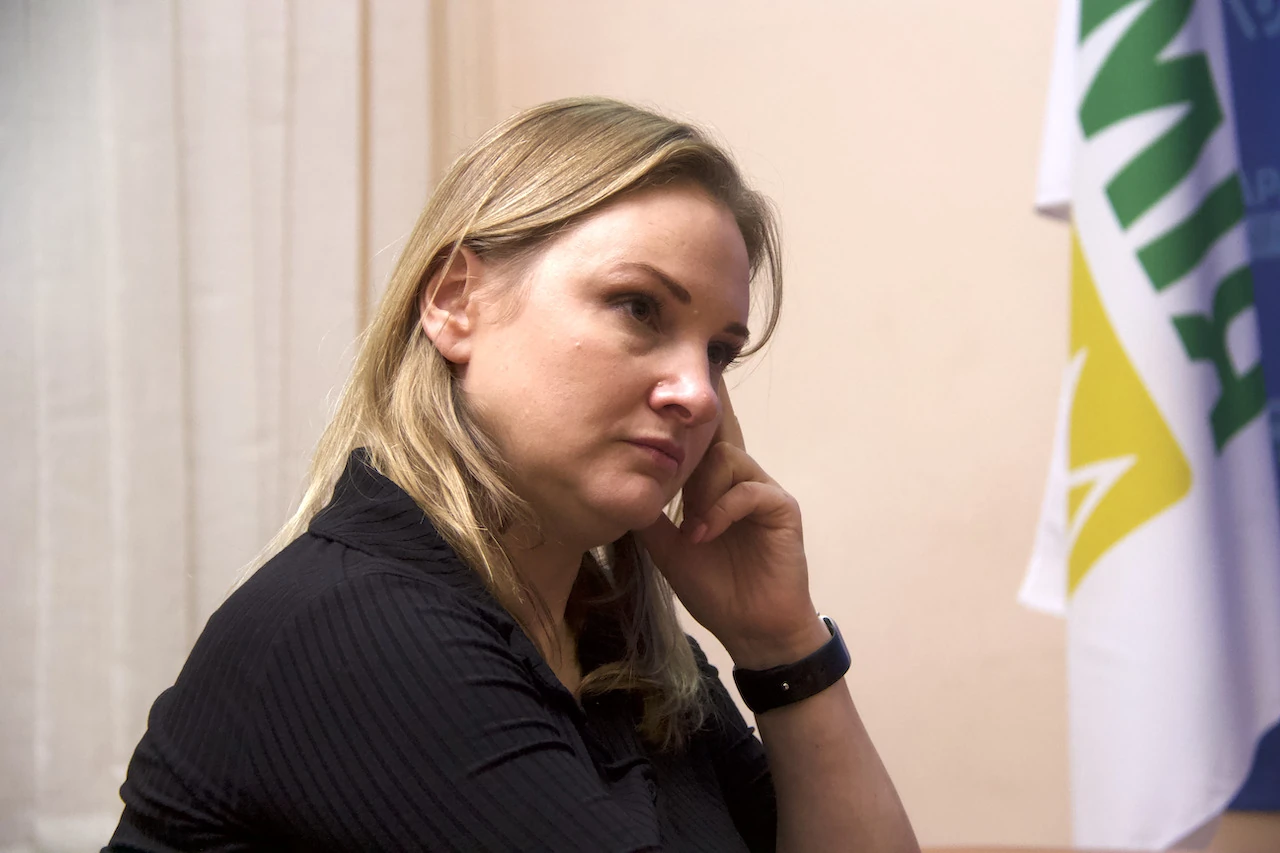
What will be the first steps once the Office starts operating?
For example, reforming the Territorial Recruitment and Social Support Centers (TRC and SSC). I have already discussed this with the Minister of Defense, with his Deputy, and even briefly with the President.
We need to separate social support for families from the TRCs — starting from the moment they are notified of a loss.
By the way, we already have a notification protocol approved by the Commander-in-Chief, but it has not yet been implemented. And this causes numerous problems within the TRCs themselves, particularly for those service members who perform the notifications. Unfortunately, there have already been cases of suicide among those TRC personnel.
So how do we protect them? How do we implement this protocol? And how do we ensure proper follow-up afterward? It is a very complex regulatory issue, because everything is deeply intertwined with personnel accounting and other matters. A lot of legal and regulatory changes are required. We are now working on a conceptual approach to make this happen.
There is another area of work — for now, just at the idea level. Specifically, there are cases where an injustice has occurred against a service member, but formally we cannot restore his or her rights.
For instance, we have seven service members who participated in combat in 2022. They were mobilized by a TRC but were never formally added to their military unit’s roster.
Let’s say, the Zaporizhzhia TRC mobilized three soldiers, issued them assignment orders, and they left for their unit. However, they never reached the headquarters, joined their platoon directly, and entered combat. Two of them were killed, and one was wounded. But none of them are officially on their unit’s roster.
As a result, neither the wounded soldier nor the families of the deceased can obtain proper status or receive payments. The TRC that mobilized them ended up in occupation, and the unit now refuses to retroactively register them. Even if a court orders the commander to place them on the roster, the commander is not legally obligated to comply.
So we have these kinds of unresolved cases — disputes for which, in my opinion, the state must take responsibility. But there is no legal algorithm for how to do so. I would like to establish, under the Military Ombudsman, a special commission to review such disputed statuses. Of course, this will require legislative action.
There are risks involved — in some cases, we may find that injustice didn’t actually occur. Nevertheless, there are also clear cases where the state must assume responsibility for an injustice done to a service member.
A very important area is working with the families of missing persons. Ukraine already has a developed infrastructure: the Coordination Headquarters and the Commissioner for Missing Persons. But there is still a gap we need to close — communication between families and military units.
Very often, these communications are poorly organized.
If I see that there’s a conflict or communication issue between a family association and a unit, we arrange an online meeting — invite the unit’s command, all responsible officials, and the families, prepare the list of issues, and discuss everything directly online.
One case I’m very proud of is with the 155th Brigade. You may remember the scandal — a large number of soldiers went missing, and their families reached out to me. They were very angry at the brigade command and had no information about what had happened to their loved ones.
I went to the brigade myself, spent several days there, worked with their investigation group. We established, literally minute by minute, what happened to each soldier. The stories were extremely painful — I reviewed videos, listened to audio recordings, analyzed combat logs to understand every case.
Then I returned to the families and, with complete honesty, told them everything I had learned. After that, we held an online call with the brigade — there were difficult, emotional discussions. But today, that brigade and the families of the missing live like one family. The families have become the brigade’s home front. They now hold calls every three weeks, all issues are resolved, and they maintain communication directly without my involvement.
This is one of the examples where we managed to unite people. We are doing the same with other units and plan to continue expanding this practice.
Another initiative — we want to develop a “military mediation and crisis communication” service. It is very advanced in the Netherlands. In Ukraine, it’s still in its infancy, but we’ve already begun taking the first steps.
We have a specialist who already conducts training sessions for brigades on the basics of crisis communication and conflict resolution. We see this service as having three levels:
Overall, there are currently many tasks before us. And step by step, we will address them all.
Photos by Taras Tymchuk and from the Facebook page of the Military Ombudsman.
@armyinformcomua
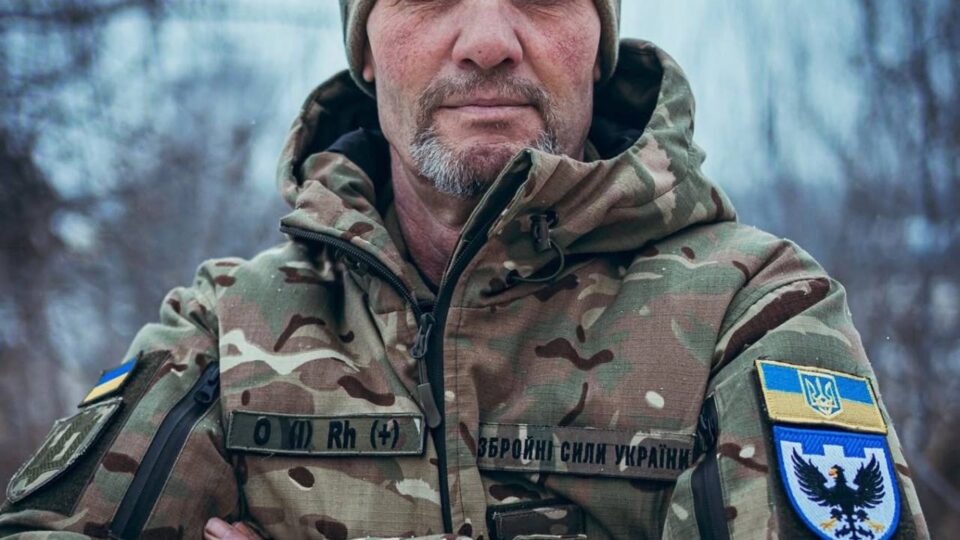
Viacheslav has been in the military relatively recently — since 2024. Before the war, he taught children music and led ensembles. But when the time came, he mad
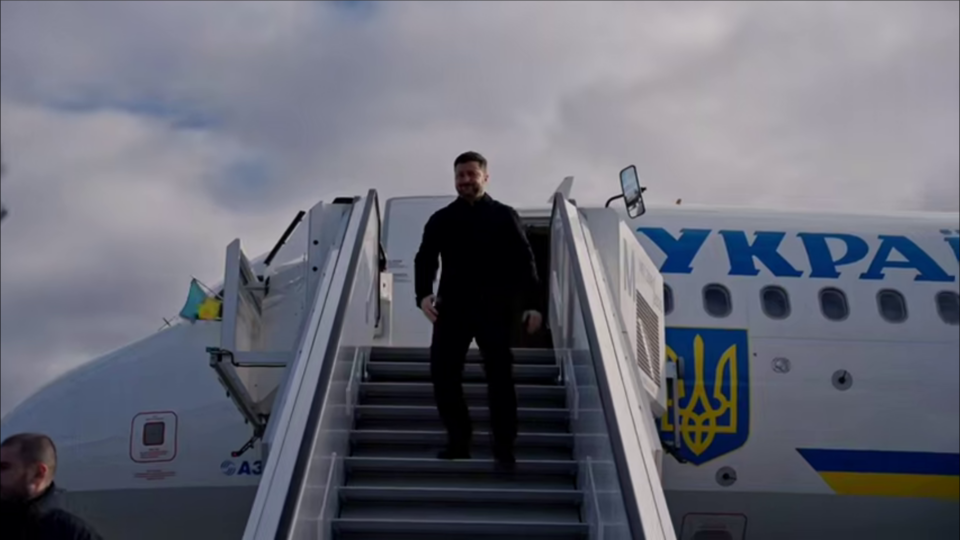
President Volodymyr Zelensky arrived in Munich, Germany, and announced new steps toward the joint security of Ukraine and Europe.
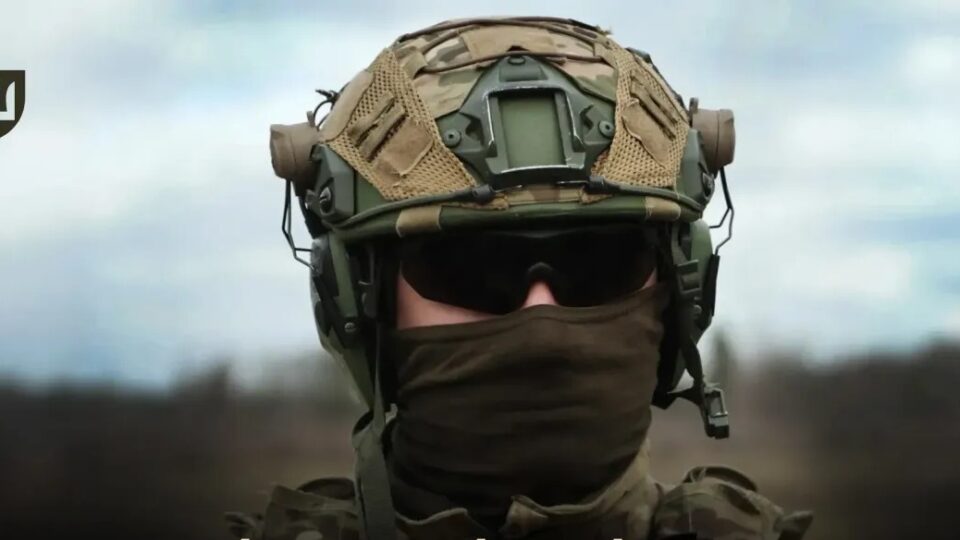
The Ministry of Defense of Ukraine responded to questions regarding the reorganization of foreign volunteer units and explained the logic behind the changes.
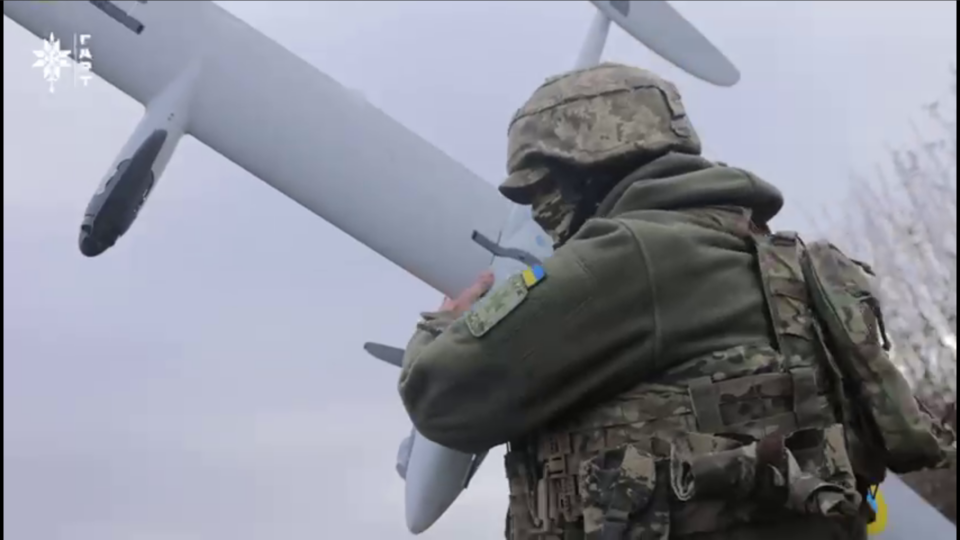
The situation on the Kupiansk direction remains consistently difficult. Weather conditions and the enemy’s attempts to advance complicate the work of the Defens
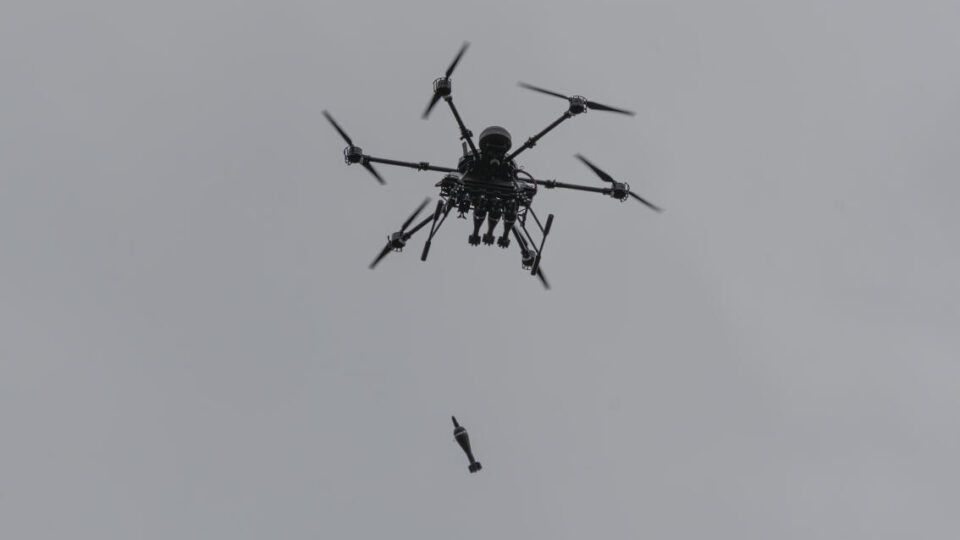
On the Oleksandrivka direction there is “infantry calm.” The occupiers are attacking rear positions and headquarters with drones.
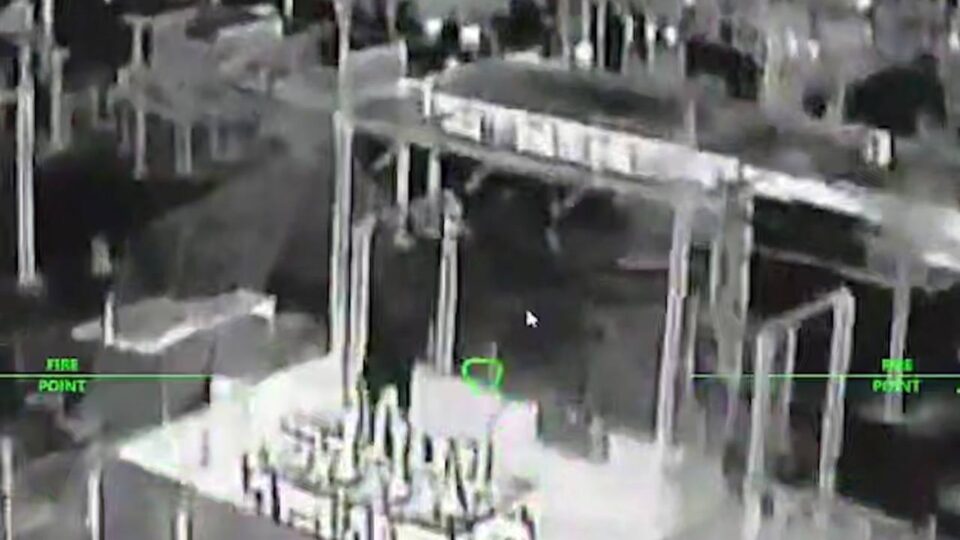
Operators of the Drone Forces used middle-strike assets to hit enemy targets located in temporarily occupied territories of Ukraine.
Today, before the first official run, the International Olympic Committee announced its decision to disqualify the Ukrainian skeleton athlete allegedly…